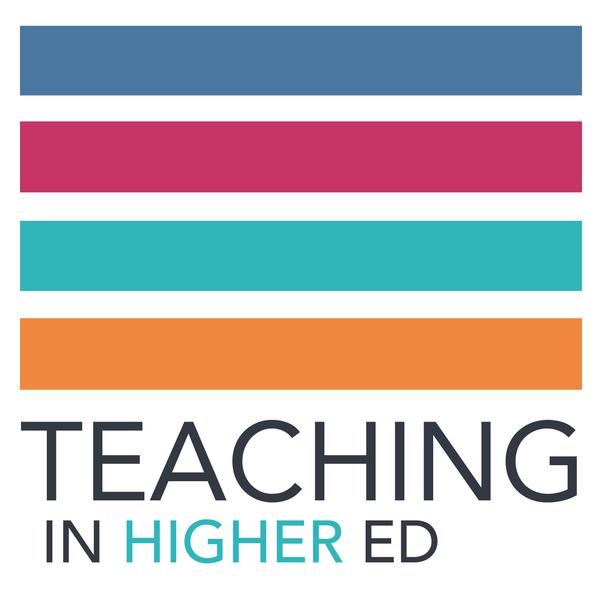
Teaching in Higher Ed
Bonni Stachowiak
Faculty Development for Professors To Facilitate Learning for Students
- 48 minutes 32 secondsHow to Learn Students’ Names
Michelle Miller shares about her book, A Teacher’s Guide to Learning Student Names: Why You Should, Why It’s Hard, How You Can, on episode 558 of the Teaching in Higher Ed podcast.
Quotes from the episode
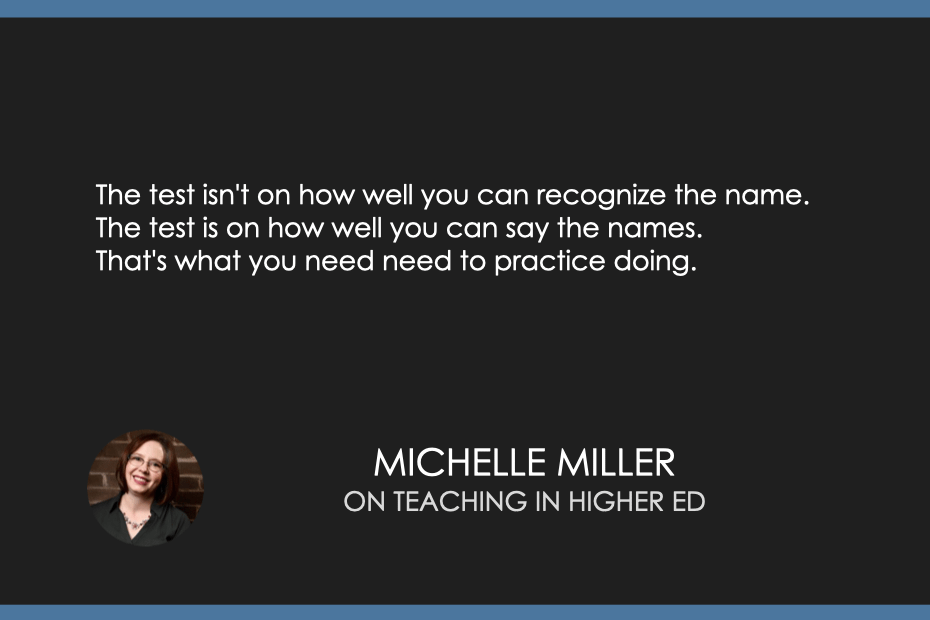
I think a lot of us kinda simmer in this little mindset of, everybody else can do this and I can’t.
-Michelle MillerWe’ve all heard the old saying it’s the sweetest sound that anybody ever hears their own name. It elevates the conversation differently to be able to use names.
-Michelle MillerThe test isn’t on how well you can recognize the name. The test is on how well you can say the names. That’s what you need need to practice doing.
-Michelle Miller20 February 2025, 1:00 pm - 45 minutes 23 secondsKey Legal Issues College Faculty Need to Know
Kent Kauffman shares about his book, Navigating Choppy Waters: Key Legal Issues Faculty Need to Know, on episode 557 of the Teaching in Higher Ed podcast.
Quotes from the episode
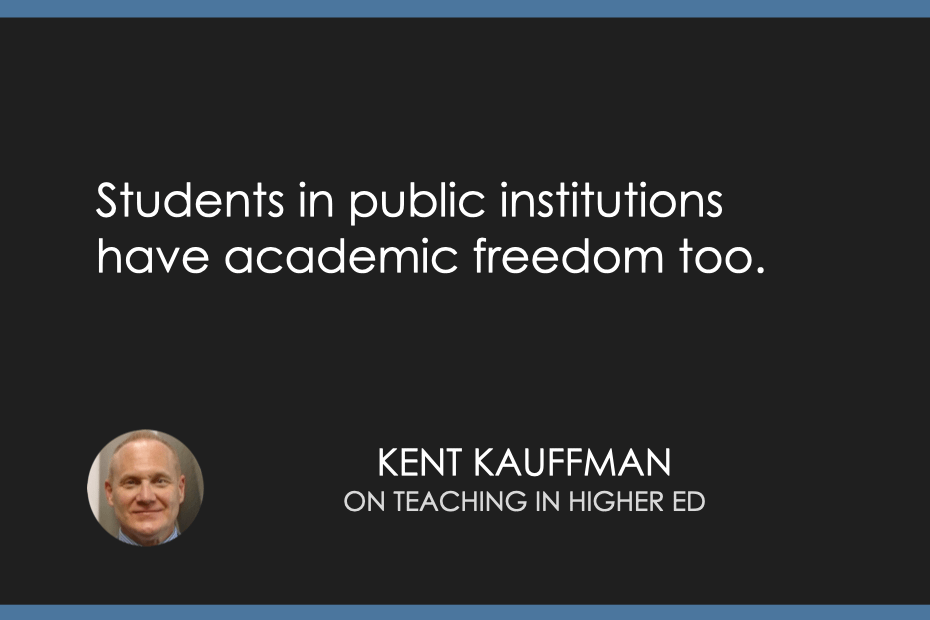
Leave the things that you have full discretion on out of a syllabus. Put those things that allow you to show to your students that you care about clarity into a syllabus.
-Kent KauffmanWhat have courts that have authority in your jurisdiction or the supreme court said about the rights faculty have in public institutions with academic freedom?
-Kent KauffmanStudents in public institutions have academic freedom too.
-Kent KauffmanDo my teaching materials belong to me, or do they belong to my employer?
-Kent Kauffman13 February 2025, 1:00 pm - 49 minutes 2 secondsSocially Just Open Education and Black Feminist Pedagogy
Jasmine Roberts-Crews shares about socially just open education and Black feminist pedagogy on episode 556 of the Teaching in Higher Ed podcast.
Quotes from the episode
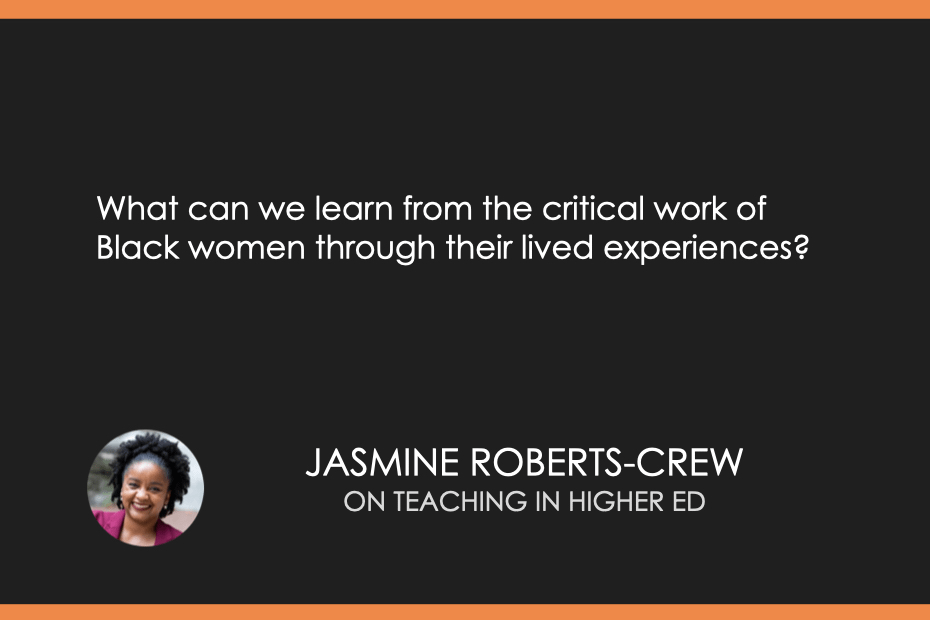
I’m focusing on Black women in particular here because there is a history among some Black women with rejecting the term feminism because there is this idea that feminism is for white women.
-Jasmine Roberts-CrewsWhat can we learn from the critical work of Black women through their lived experiences?
-Jasmine Roberts-CrewsWe’re kind of going away from or rejecting this idea that assignments are transactional.
-Jasmine Roberts-CrewsAgency, autonomy, that’s at the center of it.
-Jasmine Roberts-Crews6 February 2025, 1:00 pm - 48 minutes 34 secondsA Big Picture Look at AI Detection Tools
Christopher Ostro shares a big picture look at AI detection tools on episode 555 of the Teaching in Higher Ed podcast.
Quotes from the episode
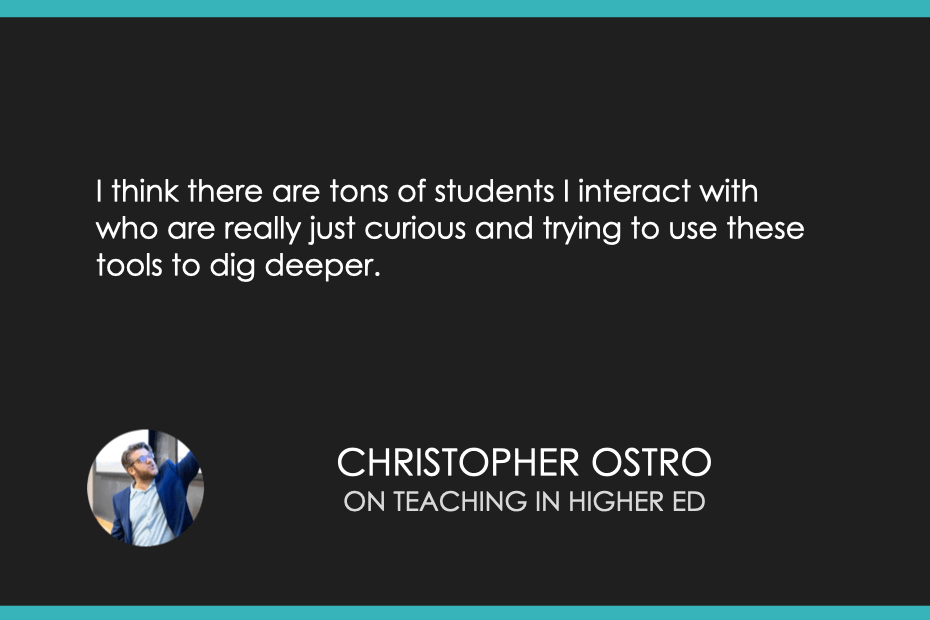
I think there are tons of students I interact with who are really just curious and trying to use these tools to dig deeper.
-Christopher OstroI want them getting practice on these things that are going to be part of their future careers and lives. I love that my classroom is a stage for that.
-Christopher OstroI think AI detection has a place, but its place is limited. I don’t think it should ever be the sole reason a student is getting honor coded.
-Christopher OstroI love to tell my students if all you’re doing with these tools is taking the output and submitting as your own work, you don’t have a job.
-Christopher Ostro30 January 2025, 1:00 pm - 52 minutes 45 secondsClassroom Assessment Techniques
Todd Zakrajsek shares about Classroom Assessment Techniques on episode 554 of the Teaching in Higher Ed podcast.
Quotes from the episode
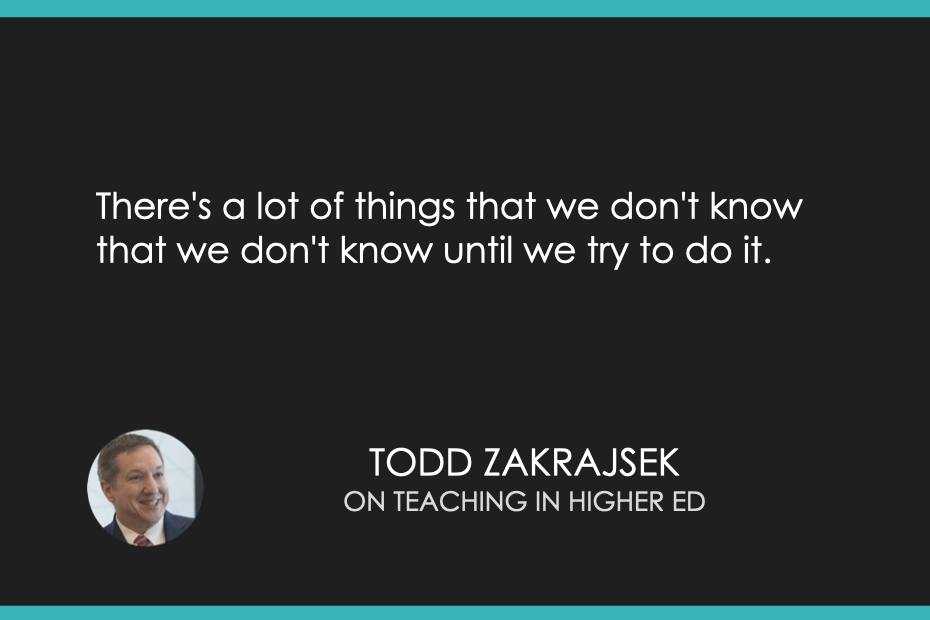
There’s a lot of things that we don’t know that we don’t know until we try to do it.
-Todd ZakrajsekIf 90% get it wrong, you didn’t teach it well.
-Todd ZakrajsekIt is so important for the students to understand that you can discuss a point and nobody knows the answer at the end, but you have thought through it.
-Todd ZakrajsekTo what extent am I helping you to learn in this class? What could I do to further facilitate your learning? What are you doing to facilitate your own learning? And what could you do to further facilitate your own learning?
-Todd Zakrajsek23 January 2025, 1:00 pm - 44 minutes 19 secondsThe Present Professor – Authenticity and Transformational Teaching
Liz Norell shares about her book, The Present Professor, on episode 553 of the Teaching in Higher Ed podcast.
Quotes from the episode
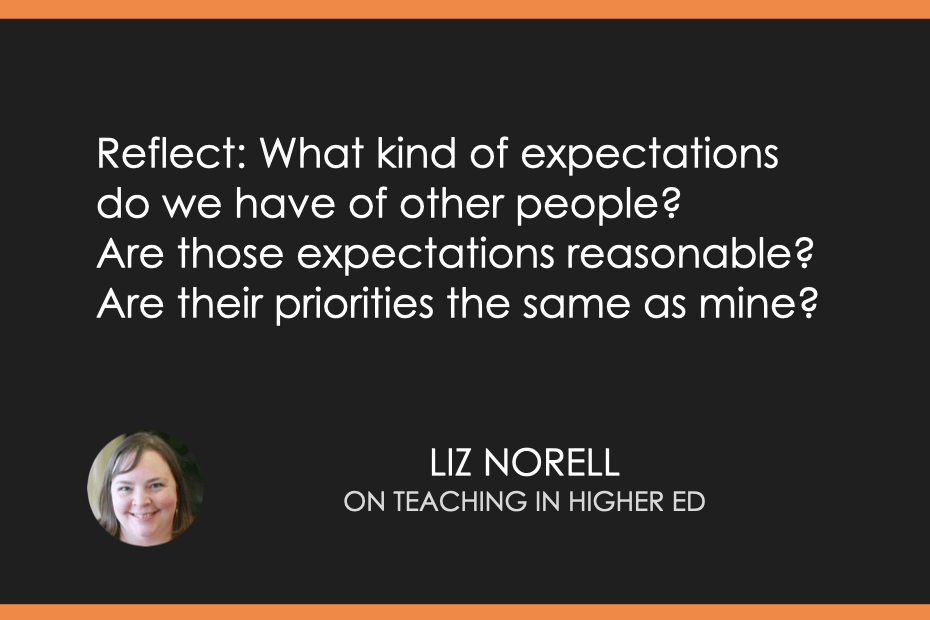
What student behavior just triggers your frustration more than anything else?
-Liz NorellReflect: What kind of expectations do we have of other people? Are those expectations reasonable? Are their priorities the same as mine?
-Liz NorellWe are living in very interesting times.
-Liz NorellI don’t think that we can cultivate empathy if we’re not feeling psychologically safe ourselves.
-Liz Norell16 January 2025, 1:00 pm - 42 minutes 58 secondsTeaching about Race and Racism in the College Classroom
Cyndi Kernahan discusses her book Teaching About Race and Racism in the College Classroom on episode 552 of the Teaching in Higher Ed podcast.
Quotes from the episode
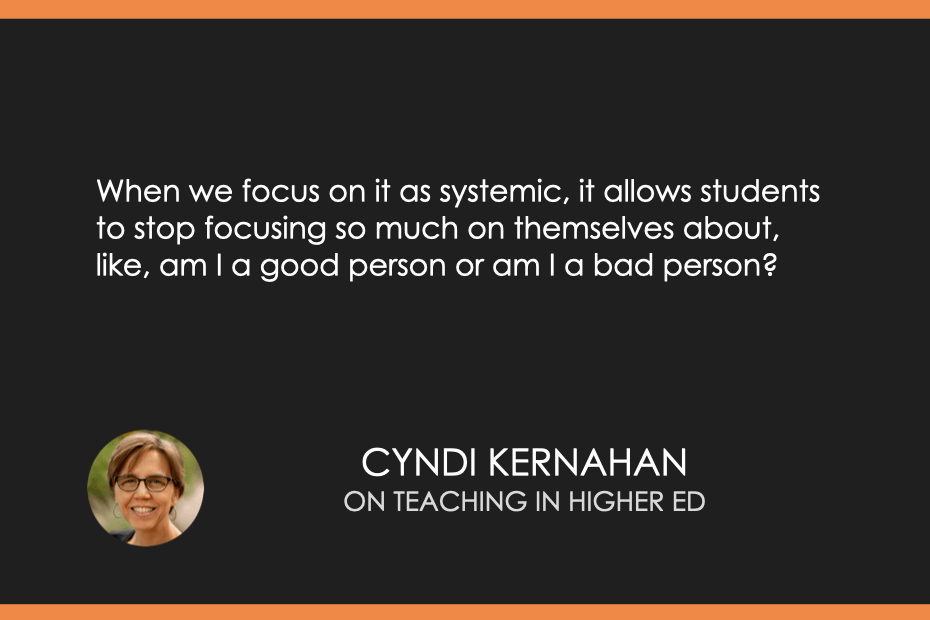
Students begin to better understand institutionalized racism, which is my main goal for them.
-Cyndi KernahanWhen we focus on it as systemic, it allows students to stop focusing so much on themselves about, like, am I a good person or am I a bad person?
-Cyndi KernahanThere’s a lot of psych research that shows that it’s easier for people to think about their own social privilege when they can also think about other parts of their identity that may not hold as much privilege.
-Cyndi Kernahan9 January 2025, 1:00 pm - 48 minutes 14 secondsRelationship-Rich Education at Scale
Peter Felten + Kassidy Puckett share about relationship-rich education at scale on episode 551 of the Teaching in Higher Ed podcast.
Quotes from the episode
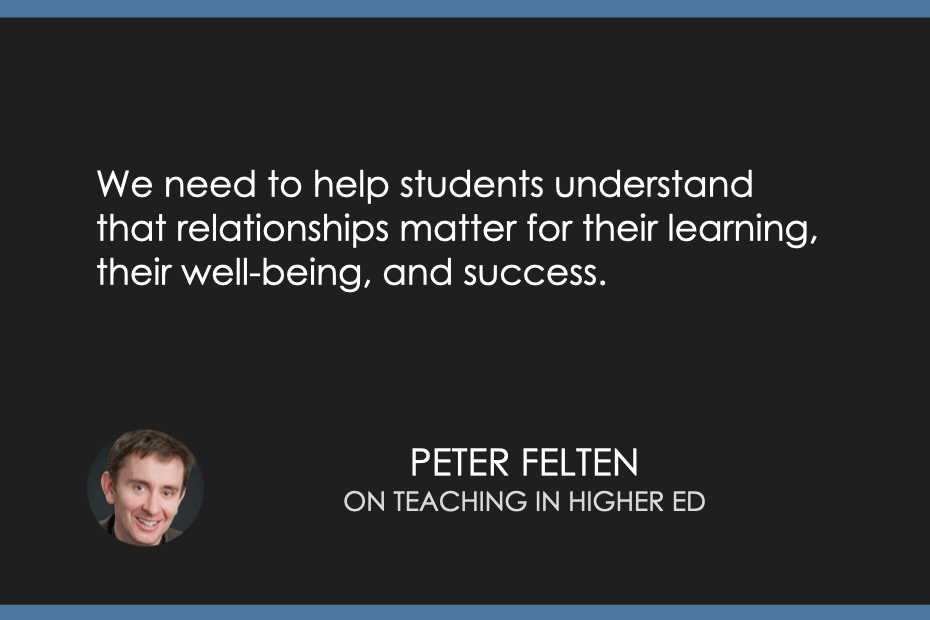
We need to help students understand that relationships matter for their learning, their well-being, and success.
-Peter FeltenCuriosity is a practice.
-Peter FeltenEmpathy in the classroom is not just about being kind; it’s about actively listening and understanding where our students are coming from.
-Kassidy PuckettSharing personal stories in the classroom can break down barriers and foster a space where students feel seen and understood.
-Kassidy Puckett2 January 2025, 1:00 pm - 43 minutes 49 secondsThe Importance of Transparency in Learning and Teaching
Kerry Mandulak talks about the importance of transparency in learning and teaching (TILT) on episode 550 of the Teaching in Higher Ed podcast.
Quotes from the episode
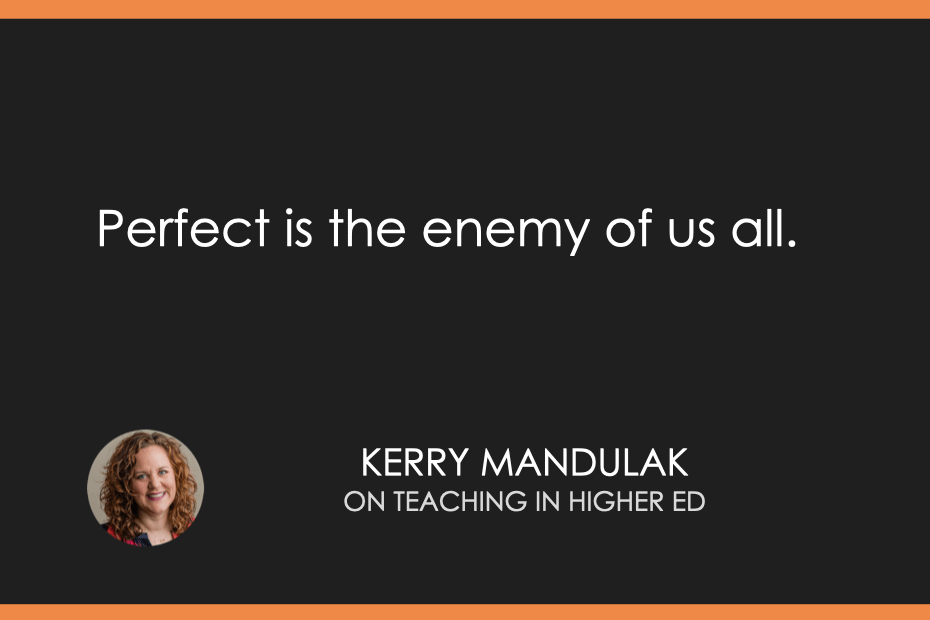
We can teach in a way where different types of learners can be successful.
-Kerry MandulakPerfect is the enemy of us all.
-Kerry MandulakI am consistently trying to impress upon students how important reflection and revising is on their learning, because students often want to just move on.
-Kerry MandulakA good hug makes a big difference. Personal connections really make a difference.
-Kerry Mandulak26 December 2024, 1:00 pm - 41 minutes 30 secondsDesigning for Justice
Rajiv Jhangiani shares reflections on designing for justice on episode 549 of the Teaching in Higher Ed podcast.
Quotes from the episode
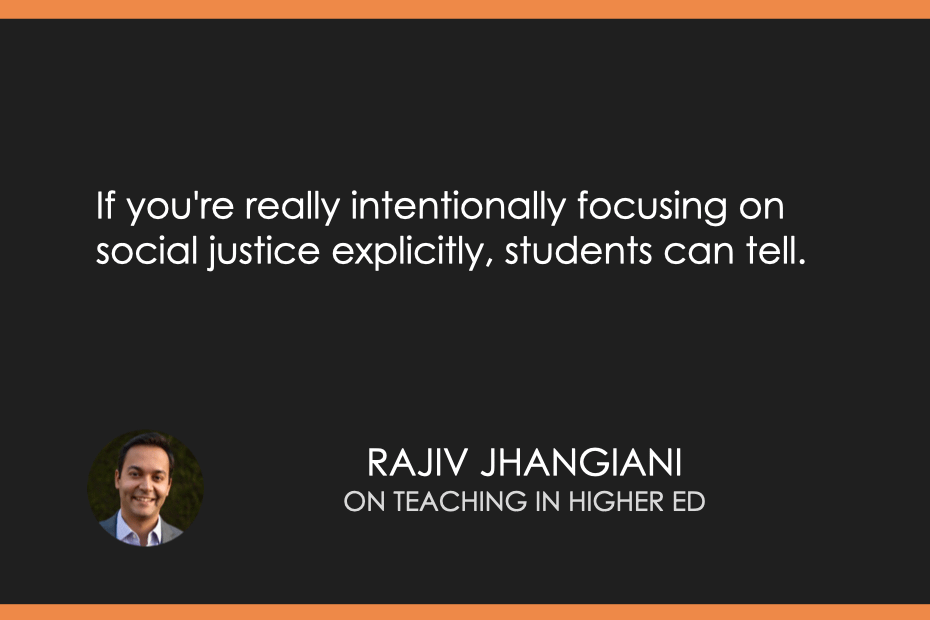
One of the actions that is in the plan for developing a framework for ethical educational technology is that new tools that are procured are not going to reinforce systemic biases.
-Rajiv JhangianiIf you’re really intentionally focusing on social justice explicitly, students can tell.
-Rajiv Jhangiani19 December 2024, 1:00 pm - 47 minutes 11 secondsHolding Class While Holding Our Breath
Betsy Barre discusses the times when we are holding our breath while holding class on episode 548 of the Teaching in Higher Ed podcast.
Quotes from the episode

I think we could be more generous when we talk to people who disagree with us about pedagogy and recognize the complexity of the decisions that we’re making.
-Betsy BarreThere’s been a lot of really somewhat heated discourse about whether it’s appropriate to share your views in class, or if that’s a violation of your responsibilities.
-Betsy BarreInstitutions can’t be fully neutral.
-Betsy Barre12 December 2024, 1:00 pm - More Episodes? Get the App